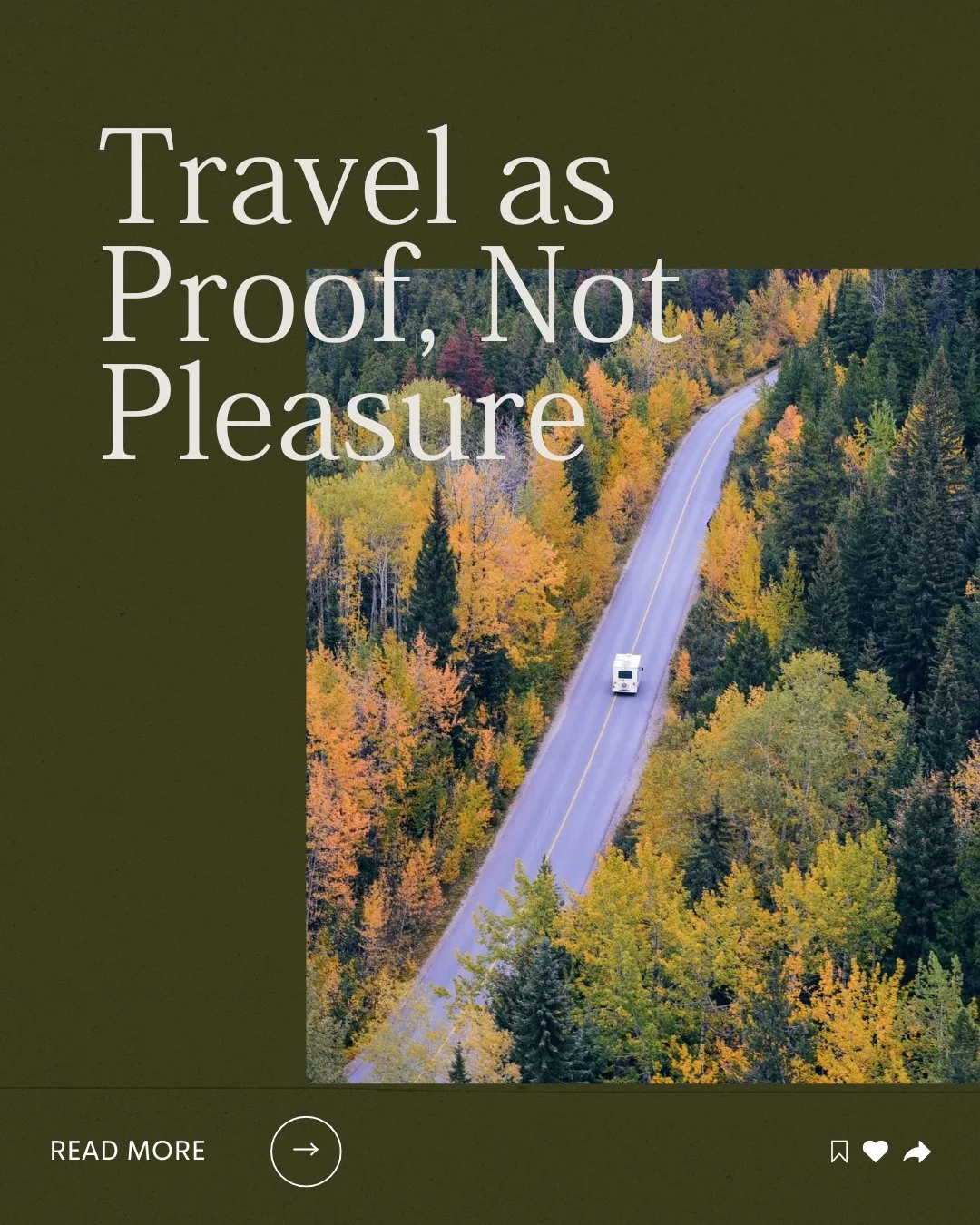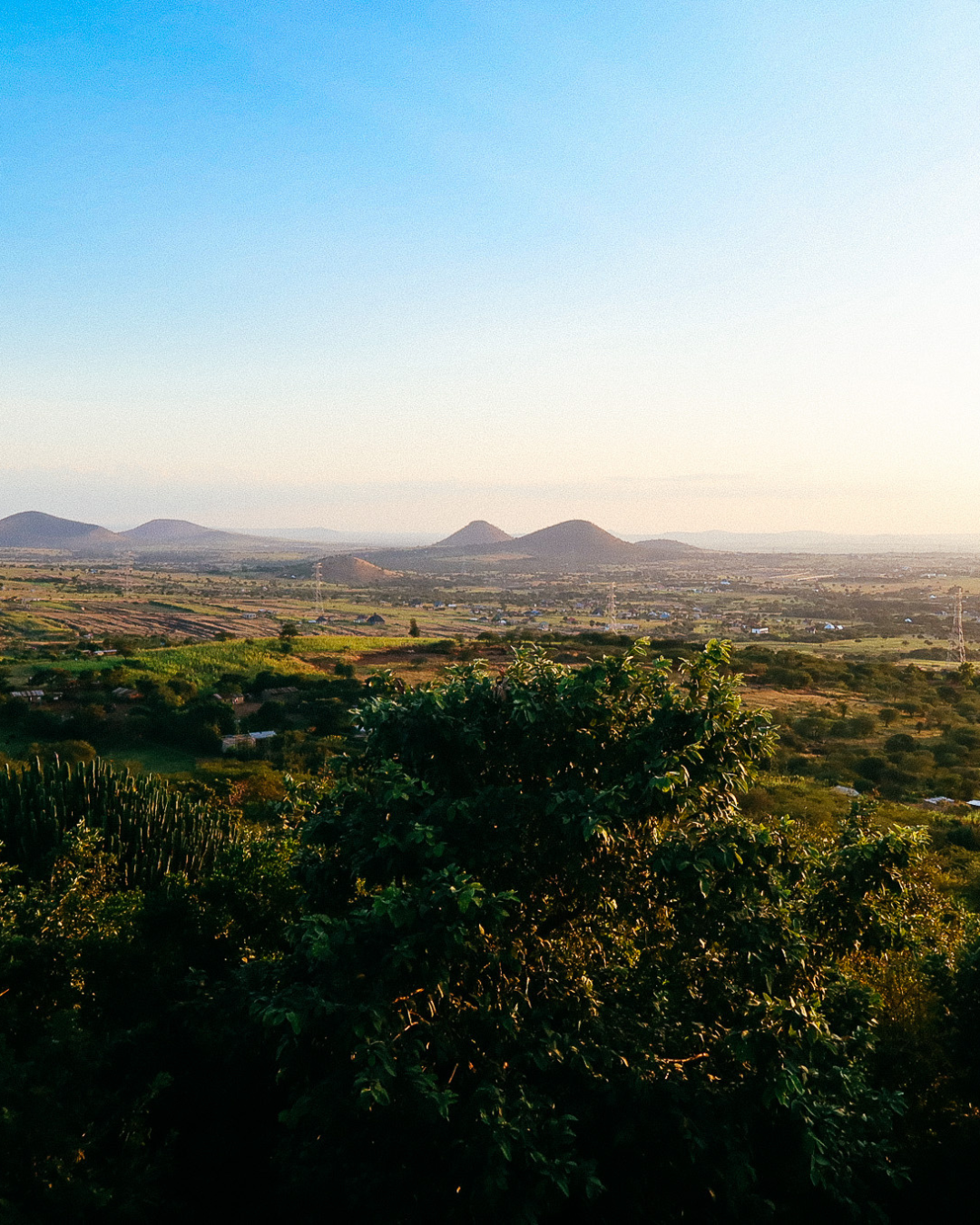Case in Point: Travel as Proof, Not Pleasure
How the rise of “passport-building” trips reveals a deeper tension between mobility, access, and performance.
It started as three voice notes on a Sunday morning. You know the kind, half-thoughts, trailing ideas, interrupted by multitasking. By the third, I called back.
My friend, also in the travel space, and I were bouncing around ideas when she suddenly said, “I don’t like the term ‘passport-building trips.’”
It wasn’t a debate, not at first. More like the release of something she’d been carrying.“Why not?” I asked, half-focused, getting dressed for church. “It’s practical.”
But even as I said it, I knew what she meant.
It’s a phrase that’s gained traction in recent years, especially among Nigerians with travel ambitions beyond our immediate region. The idea is simple: travel strategically now, often through visa-free or easier destinations, to build a record of movement that might strengthen your chances later.
A kind of travel résumé. Or, depending on how you look at it, a performance.
It sounds smart. But it also sounds exhausting.
The Strategy Behind the Stamp
Let’s start with the data. The Nigerian passport ranks 92nd on the Henley Passport Index as of July 2025, with visa-free or visa-on-arrival access to just 45 destinations. This means that for most global travel (Europe, the US, parts of Asia and Africa) Nigerians need to apply for visas, often with a pile of supporting documents: bank statements, hotel bookings, return flights, letters of employment, proof of family ties.
There’s no guarantee. Denials happen even when everything is technically in order. So for many, the idea of passport-building is a workaround. The thinking goes: if you can show travel history, stamps from “stable” countries, a consistent pattern of return, your next application may be more likely to be approved.
It’s the travel equivalent of trying to build a credit score, one short trip at a time.
And so, you get these frenzied 10-day itineraries along West African Coast, multiple cities in one week, or quick East African hops — planned not for leisure, but for optics. The goal isn't to rest or immerse; it’s to prove you're the kind of person who travels “well” and comes back home.
Movement Without Pause
From a travel perspective, it makes sense. From a human one, it can feel like a hustle.
I’ve seen (and also helped build) itineraries where the logistics feel like a start-up pitch deck, hyper-optimised for visa impact. Three nights in Nairobi. A layover in Addis Ababa. A quick weekend in Kigali. Not quite enough time to be anywhere. Just enough time to say you’ve been.
And the irony is, these trips cost money. They’re not budget backpacker runs. They're fast, curated, expensive, and entirely structured around navigating a mobility system that sees Nigerian passports (and many others across Africa) as risk signals rather than identities.
Even for travel professionals, it becomes a performance. You have to constantly prove that you’re “returnable.” I know people who dress a certain way for embassy interviews. People who plan whole holidays around the question of: Will this stamp help my next one?
Travel, Marketing, and the Quiet Politics of Language
What interests me most, and maybe this is where my marketer brain kicks in, is the language we use.
“Passport-building” isn’t just a term. It’s a worldview. One where travel becomes a transaction, where movement is constantly surveilled, and where the joy of going somewhere new is often secondary to proving you won’t stay there.
It’s also a uniquely post-colonial problem. For holders of American or EU passports, “building” isn’t even part of the lexicon. Their travel is assumed to be innocent, a lifestyle, not a threat.
Meanwhile, the rest of us build.
We build credibility, itineraries, paper trails. We over-explain. We understate our ambitions. And we call it strategy.
From a brand point of view, this isn’t just a visa issue, it’s a positioning one. What does it mean that even in our leisure, we must be legible to systems that were never built for us? What does it say that we’ve internalised these terms, and sold them as viable travel products?
What Comes After the Stamp?
To be clear, I don’t think “passport-building” is inherently bad. I understand why people do it. I’ve advised clients on it. I’ve done versions of it. I’ve watched friends go from a quick Dakar–Gambia run to Morocco, even Singapore. And I’ve seen the confidence it brings when a previously denied traveller finally gets a UK or Schengen visa.
But I also think we should be honest about the emotional cost. About the fact that many people come back from these trips more tired than when they left, not from travel, but from performance. Not from movement, but from surveillance.
Travel should stretch you, not drain you.
And so I come back to my friend’s original point: maybe we need a better word. Or at least a better way of thinking about these journeys. Can we still be strategic, without being cynical? Can we still plan trips with purpose, without turning them into visa chess moves?
Can we build a travel culture that prioritises dignity, not just documentation?
Rethinking Access in a Globalised World
In marketing, we often talk about “aspirational travel.” But aspirational for whom? And what happens when the aspiration is not a destination, but the right to go?
For too long, the industry has built for the passport-privileged. But if more of us — planners, marketers, creators — are honest about these realities, maybe we start shifting how travel is imagined, sold, and shared.
Maybe we start designing itineraries that offer room to breathe. Maybe we start advocating for systems that treat people as travellers, not threats.
Maybe we stop pretending that mobility is meritocratic.
Until then, we move smart. But we also move with softness. We build, but we also rest. We prove, yes, but only if we still get to feel something along the way.
Because if a trip doesn’t give you a moment to pause, to laugh, to reflect, was it really travel? Or just another audition?






